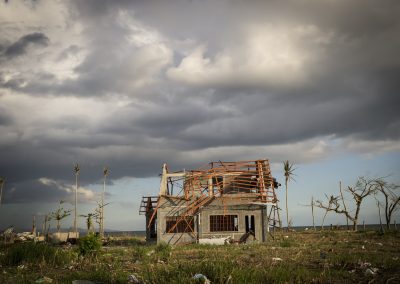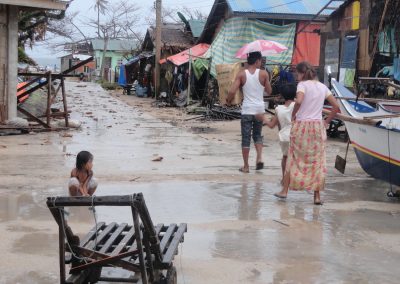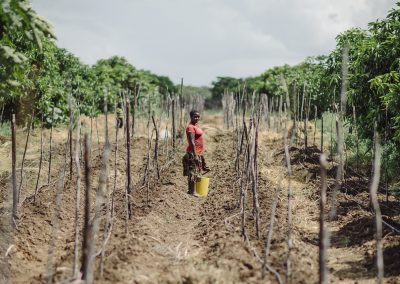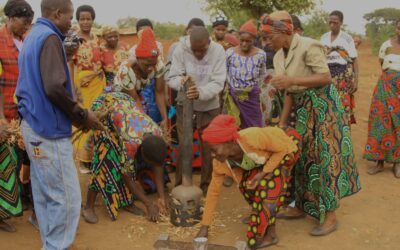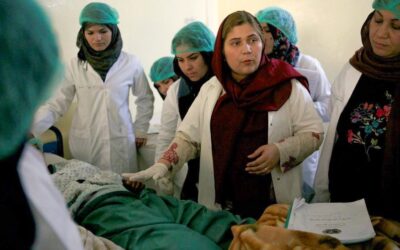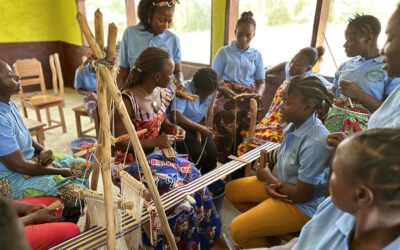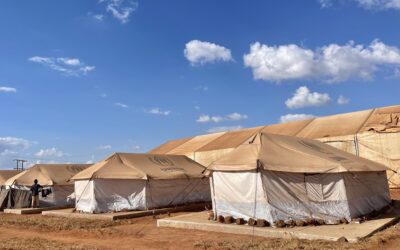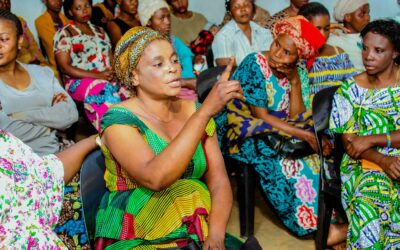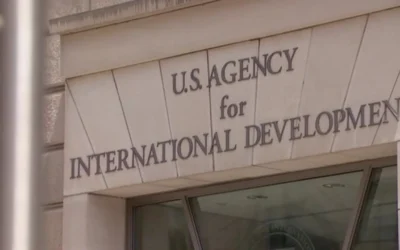5 Ways Climate Change Affects People Living in Poverty
Climate change is currently at the forefront of many political and environmental debates in the West, but for many poorer regions, particularly in Africa and South Asia, the effects of climate change are a daily reality.
Although the earth’s climate has been changing since its formation, temperatures have been rising rapidly since the industrial revolution. By burning fossil fuels, humans increase emissions (greenhouse gasses that are trapped in earth’s atmosphere) like carbon dioxide and methane. These emissions trap energy in the atmosphere and increase the temperature of the earth. Temperatures have risen about 1.4 degrees Fahrenheit in the last century.
Climate change affects regions across the globe, however, people living in poverty are more affected despite the fact that the 50 least developed countries in the world contribute only 1 percent of greenhouse gas emissions. Climate change can bring about disastrous weather events, of which 99 percent of total fatalities and 90 percent of all economic losses occur in less developed countries.
Because of their already vulnerable state, poor communities are particularly at risk of feeling the effects of climate change. Here are five ways climate change is impacting the poor.
1. Natural disasters sink poor communities further into poverty
Studies suggest that natural disasters are on the rise, as evidenced by the fact that extreme weather events between 2000 and 2009 increased three-fold over the years between 1980 and 1989.
Floods, tsunamis, droughts and other natural disasters can destroy communities with already fragile infrastructure. They often lack safe housing, live in overcrowded cities or very rural villages, and have little access to health and other services. As a result, communities can suffer widespread disease, shortages in food, water and basic necessities. For example, the Philippines experienced a devastating Typhoon in 2013 that affected fourteen million people. Many communities hit by the Typhoon were already burdened by poor infrastructure, and didn’t have the capacity to deal with such a catastrophic event, pushing families deeper into poverty.
Regions experiencing poverty are often unable to recover from natural disasters without massive financial and logistical support. According to a report by Oxfam in 2009, when a disaster strikes a high-income country 23 people die on average, while 1,052 die on average in the least-developed countries.
2. Greater health risks
Human activities like driving cars and producing coal introduce carbon dioxide and other toxic gases that change the normal composition of the air we breathe. This reduction in air quality reduces the amount of oxygenation in the respiratory system, affecting the brain and the heart, which can lead to cardiovascular and respiratory diseases. The vast majority of people at risk are in urban areas in low and middle income countries. Children in less developed countries experience the greatest health risks.
Another health-related impact of climate change is access to clean water. Shrinking sources of freshwater, droughts, changes to the water cycle, and few resources for purifying water, all cause less access to clean water and sanitation. This impacts health, especially for children, by increasing instances of waterborne diseases, malnutrition, and impaired developmental growth.
3. Flooding and coastal erosion
Coastal flooding is becoming more prevalent because of rising sea levels. Over half of the world’s population is located within about 40 miles of the sea. When sea levels rise, coastal erosion and increased flooding occurs, forcing people to move and impacting economies dependent on climate-sensitive resources, such as agriculture.
Flooding can also contaminate water sources, increasing the transmission of water-borne diseases, such as Typhoid and Cholera. Instances of Malaria can increase with flooding because standing water acts as breeding grounds for mosquitos.
4. Food security
Changing temperatures and rain patterns, particularly droughts, have detrimental effects on farmers and can cause food insecurity. Unfavorable weather can lower crop yields and decimate livestock. This means that income goes down for farmers and their families, sending people further into poverty. It can also cause massive food shortages, increasing food prices, and even lead to famine.
5. Forced migration
In the aftermath of natural disasters, droughts, famine, and other climate change issues, the poor are often faced with the tough choice of either migrating to places with better living conditions, or staying in their home and risking further uncertainty and loss.
Somalia, for example, suffered a famine in the 1980s. The famine led to conflicts over resources, which sent it into civil war in 1991. Amid these turbulent times, droughts also became more frequent amounting to the deaths of 250,000 people and a mass migration of almost a million from Somalia to nearby countries in 2011.
Addressing the effects of climate change on the poor
One Day’s Wages works to address the effects of climate change on the poor through projects and partnerships. Over the past 11 years, we’ve noticed a recurring theme in 22+ projects we’ve already funded: climate impacts people, and people impact the climate. In 2020, we trained coffee farmers in Guatemala, with our partner Pueblo a Pueblo, to become beekeepers after a fungus called coffee leaf rust decimated yields across the coffee-growing highlands, due to warmer climate. In Senegal, unpredictable rainfall patterns brought about by climate change have led to decreased access to water and limited agricultural production, so with our partner CREATE!, we’ve installed solar pumps at wells making clean water available 2,500 people year round.
The innovative ways that people and organizations are addressing the effects of climate change on the poor is encouraging, but these projects alone are not enough.
According to NASA, 2020 tied with 2016 as the hottest years globally on record. If current trends continue, the effects of climate change could push an additional 100 million individuals into poverty by 2030. To combat these global effects, it’s going to take all of us. Real change for the most vulnerable will only come with global participation: country-to-country, city-to-city, person-to-person. At One Day’s Wages, our goal is to be a part of the solution by taking small steps to make an impact on poor communities.
You can contribute to One Day’s Wages’ work to combat the effects of climate change on the poor by giving to our Climate Impact fund, or by starting a fundraiser.
Photos courtesy of World Relief, Medical Teams International, and Eden.
More stories of impact
Starting With Strengths: How Asset-Based Development Can Transform Communities
When people talk about community development, the conversation often begins by listing what’s missing: clean water, farming knowledge, health clinics, and more. And while understanding needs is important, defining communities by their needs can paint them as passive,...
One Day’s Wages Named Together Women Rise 2026 Featured Grantee for Maternal Health Work in Afghanistan
One Day’s Wages (ODW) is honored to announce its selection as the 2026 Featured Grantee of Together Women Rise, a powerful global community of women and allies committed to advancing gender equality. This prestigious award includes a $50,000 grant over two years...
Women at Work: Toward Inclusion in the Global Workforce
Can you remember the last time you couldn’t make it to work? Maybe your nanny canceled, and you were left without childcare. Or maybe your car battery died, and you didn’t have a safe way to get to the office. These are the kinds of barriers that women around the...
Standing in Solidarity When the World Turns Away
We cannot fix every broken system. But we can choose to stand in solidarity with those who cross our path. This choice, this posture of care and action, is what fuels us at One Day’s Wages. And it’s why we need each other, now more than ever. Recently, our Global...
Turning Challenges into Opportunities: Masoka’s Journey of Empowerment
Masoka’s hands are stained with the rich soil of the land she now calls home. A 37-year-old mother of four, she arrived at Dzaleka Refugee Camp in Malawi after fleeing the conflict in her home country, the Democratic Republic of the Congo. The future felt uncertain,...
What Was USAID, and What Now?
USAID has made news headlines constantly over the last few months. You may find yourself wondering: what is USAID, and is One Day’s Wages affected by its dismantling? As a global development organization, we at ODW care deeply about the people who depend on foreign...
LEARN
Leadership
Transparency
Read the Latest
Contact Us
COLLABORATE
Faith Groups
Schools
Businesses
Get Involved
One Day’s Wages exists to alleviate extreme poverty by investing in, amplifying, and coming alongside locally led organizations in underserved communities.
©2025 One Day's Wages is a registered 501(c)(3) organization | Tax ID #26-2566653 | Privacy policy | Terms of use
P.O. BOX 17575 Seattle, WA 98127 | Contact us

